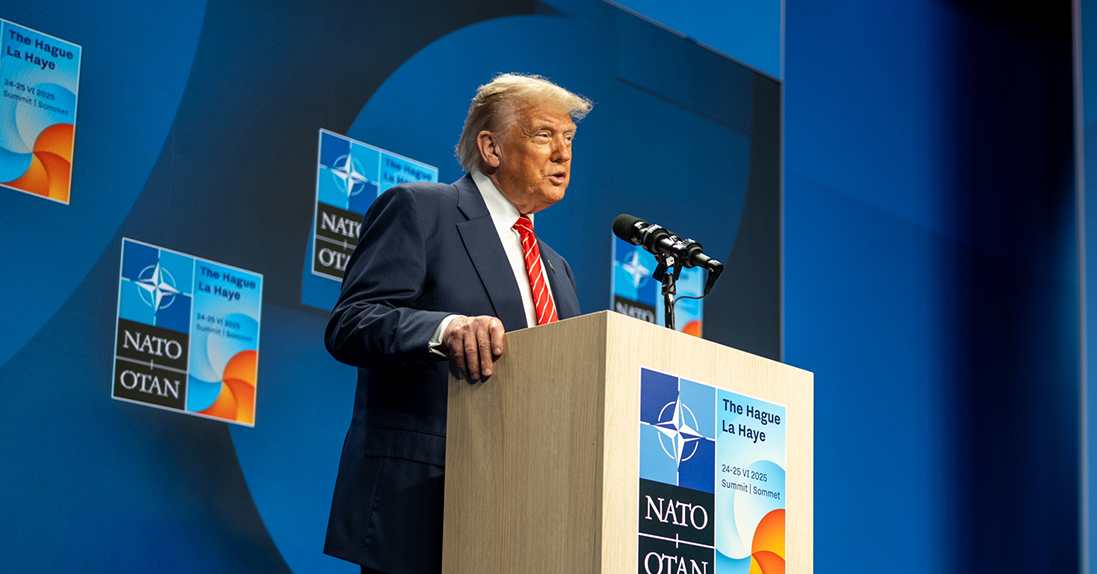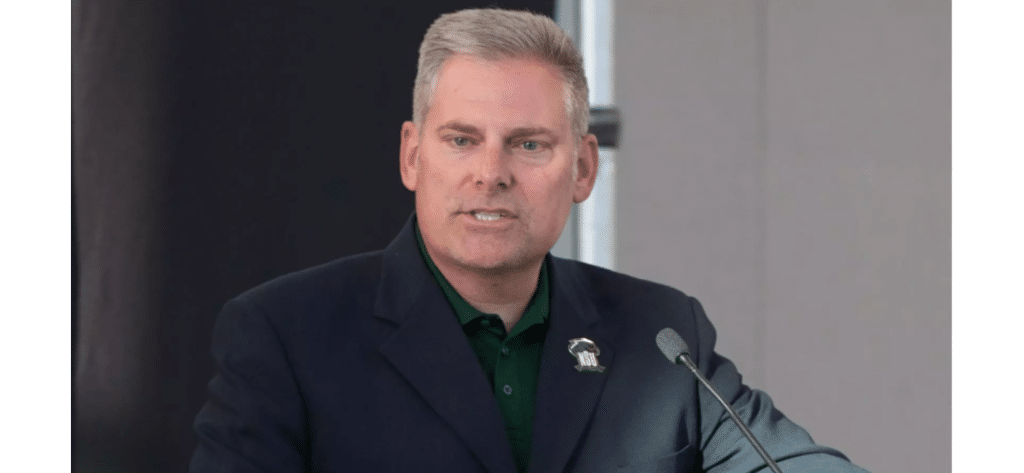Trump’s NATO Strategy Secures Historic Defense Spending Increase

In a landmark achievement for international security, President Donald J. Trump has successfully brokered a pivotal agreement to significantly boost defense contributions across the NATO alliance. This development marks a transformative moment in global defense strategy, ushering in a new era of shared responsibility among member nations.
The agreement, which was met with widespread acclaim, commits NATO countries to increase their defense spending from the current 2% of GDP to an ambitious 5% by 2035. The decision, reached during a summit in The Hague, has been hailed as a diplomatic triumph for President Trump, who has long advocated for greater financial commitment from America’s allies.
Global Praise for a New NATO Era
The announcement has drawn praise from leaders around the world, highlighting the significance of this shift in defense policy. NATO Secretary General Mark Rutte remarked,
“Would you ever think that this would be the result of this summit if he would not have been re-elected president? … I think he deserves all the praise.”
Finnish President Alexander Stubb echoed this sentiment, stating,
“We’re witnessing the birth of a new NATO … This is a big win, I think, for both President Trump and I think it’s also a big win for Europe.”
Polish President Andrzej Duda emphasized the crucial role of Trump’s leadership, noting,
“Without the support and without the leadership of Donald Trump, it would be impossible.”
Meanwhile, Estonian Prime Minister Kristen Michal celebrated the historic nature of the agreement, stating,
“It’s a historic moment that we will be ramping up defense expenditure to five percent. I strongly, and Estonia strongly, support it.”
Strategic Implications and Expert Analysis
The decision to increase defense spending comes at a time of heightened global tensions, with many experts noting the strategic necessity of such a move. European Union foreign policy chief Kaja Kallas commented on the unity among allies, saying,
“Allies seem to be united. I think the understanding is everybody needs to do more for defense because we are living in very turbulent times.”
Foreign affairs analyst Jasmine El-Gamal described the agreement as a significant achievement, stating,
“It’s something that Trump is going to tout as an achievement, and he wouldn’t be wrong in doing so … It was clear that Trump is the mover and shaker and that he sets the tone and agenda.”
Historical Context and Legislative Support
This development follows years of negotiations and advocacy by President Trump, who first called for increased defense spending by NATO allies in 2017. The agreement represents a major policy shift, with bipartisan support from U.S. lawmakers underscoring its importance.
Speaker Mike Johnson remarked,
“NATO countries bumping defense funding from less than 2% to 5%! No more free rides for the rest of the world. No more using the American taxpayer as their own personal piggy banks. THIS is the Trump effect.”
Senate Foreign Relations Committee Chair Jim Risch added,
“@NATO’s commitment to raise defense spending to 5% is a tremendous achievement. Thank you to @realDonaldTrump, @SecGenNATO, and our allies who worked to achieve this outcome.”
Comparisons and Future Outlook
Historically, NATO has struggled with uneven financial contributions, with the United States often shouldering a disproportionate share of the burden. The new agreement aims to rectify this imbalance, ensuring a more equitable distribution of defense responsibilities among member nations.
Sen. Ted Cruz emphasized the importance of strong American leadership, stating,
“NATO’s commitment to step forward and invest more would’ve never happened without President Trump’s leadership. Strong American leadership has returned.”
Rep. Mike Turner praised the agreement, noting,
“I applaud strong leadership of President Trump in convincing our European & Canadian partners of their shared responsibilities to peace and security, not just in words but of investments in collective defense.”
Conclusion: A Stronger Alliance for a Safer World
The historic commitment to increase defense spending marks a significant step forward for NATO, reinforcing the alliance’s ability to respond to emerging global threats. As nations work towards fulfilling this pledge, the agreement is expected to enhance collective security and strengthen the transatlantic partnership.
With this landmark achievement, President Trump has not only reshaped NATO’s strategic priorities but also reaffirmed the United States’ role as a leader in global defense. As the world navigates uncertain times, this renewed commitment to shared security promises to bolster international stability and peace.






